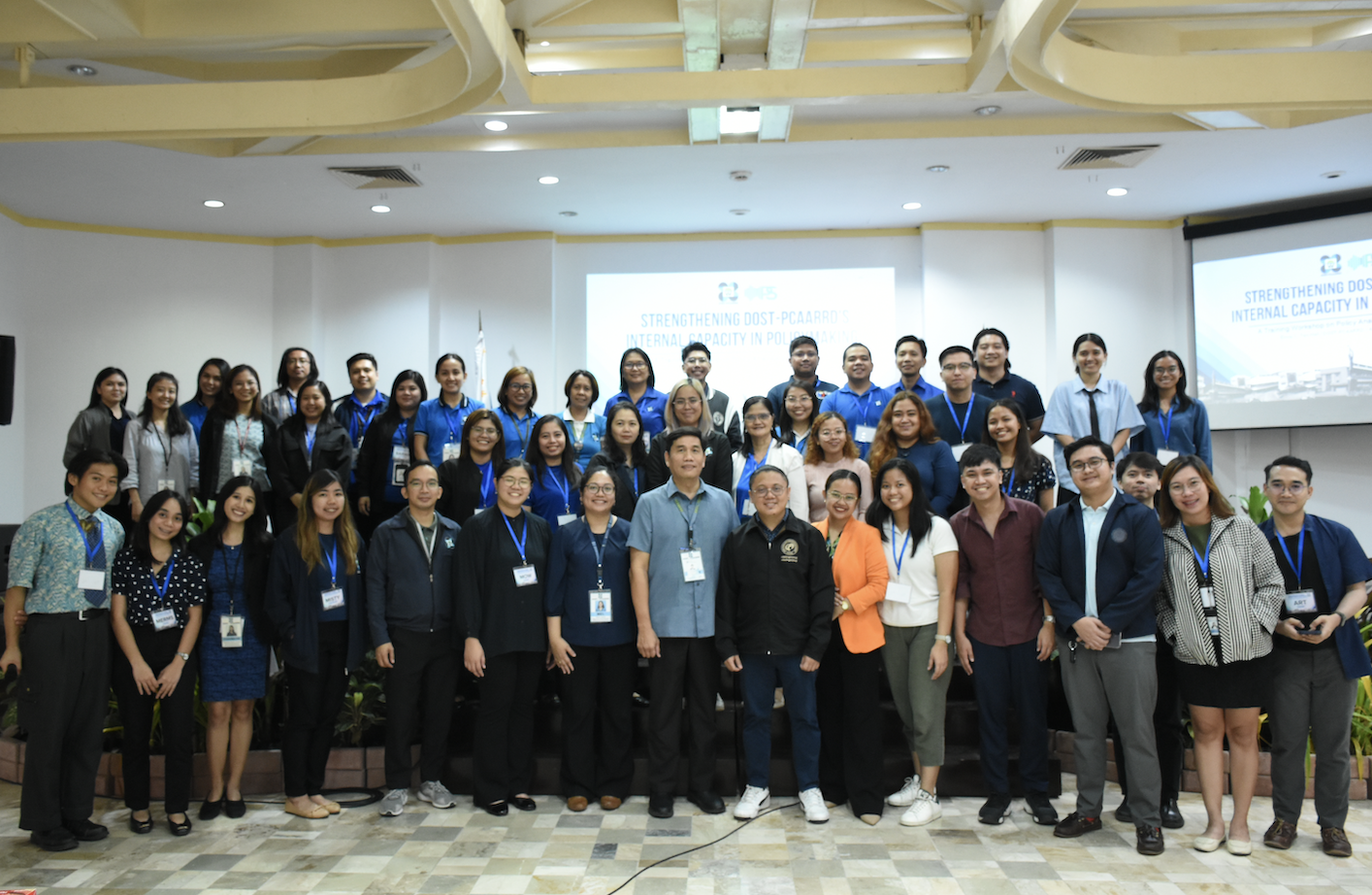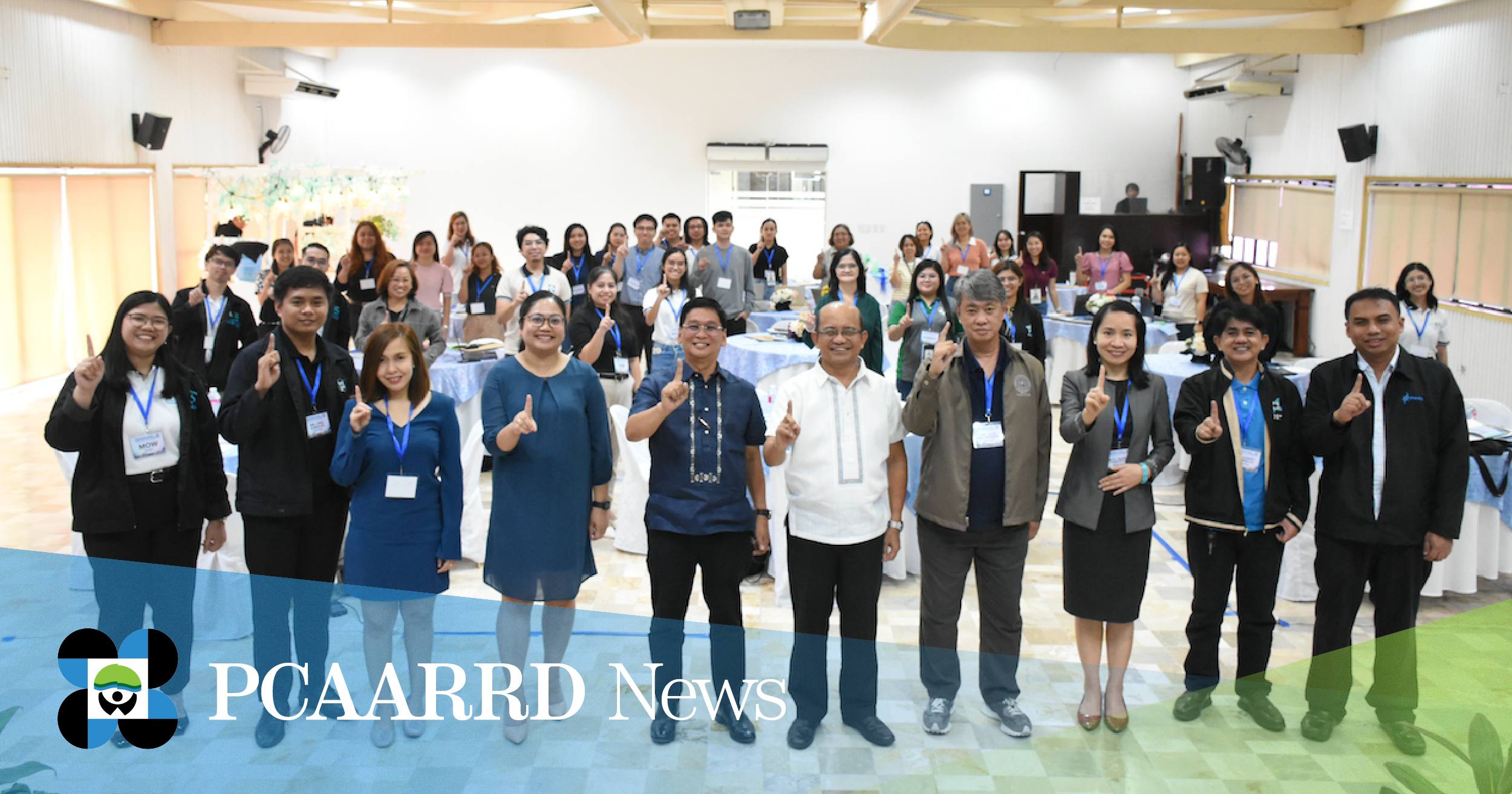Aligned with its Policy Analysis and Advocacy Banner Program, the Department of Science and Technology’s Philippine Council for Agriculture, Aquatic and Natural Resources Research and Development (DOST-PCAARRD) recently hosted a four-day training workshop to enhance the science-informed policymaking skills of its staff. Organized by the Socio-Economics Research Division (SERD), the training workshop themed, "Strengthening DOST-PCAARRD’s Internal Capacity in Policymaking: A Training Workshop on Policy Analysis and Advocacy," took place at E.O. Tan Hall on August 9 for the introductory session and from August 13 to 15, 2024 for the intensive session. The event brought together 35 participants from the various divisions of DOST-PCAARRD.
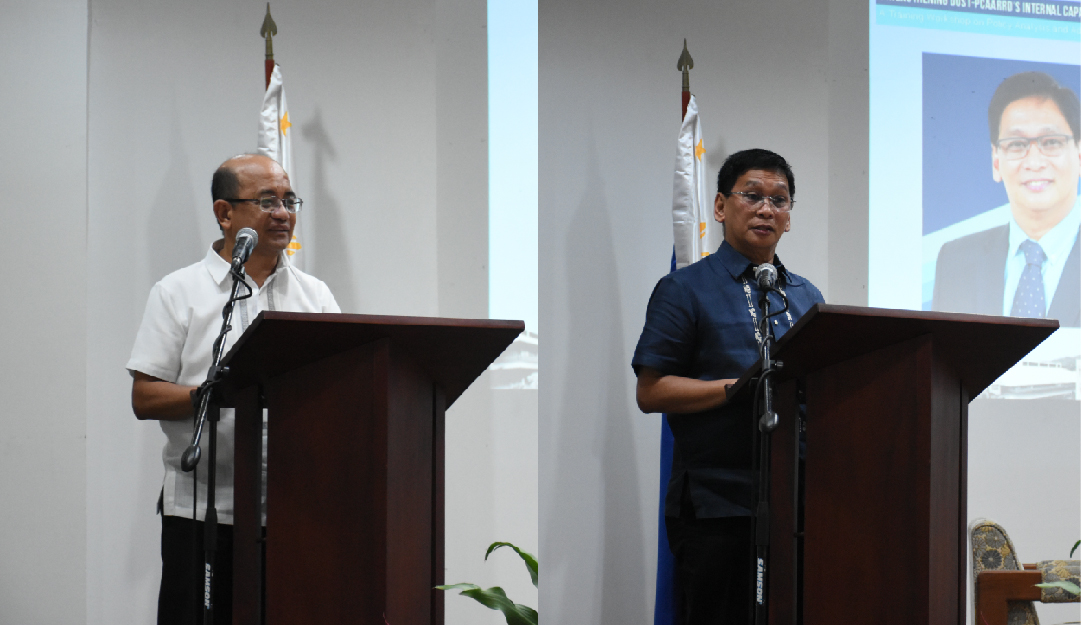
The workshop aimed to bolster PCAARRD staff's abilities in policy analysis and advocacy, aligning with the Council’s mission to support a policy environment conducive to science, technology, and innovation. It specifically aims to instill appreciation for policy analysis and advocacy among the participants; develop the participants' knowledge and skills in utilizing policy analysis tools; provide practical experience in applying policy analysis tools through a workshop; familiarize the participants with the legislative process, and equip participants with the skills to effectively address concerns and requests of Congress, key national government agencies (NGAs), and other institutions.
Dr. Reynaldo V. Ebora, DOST-PCAARRD Executive Director, opened the four-day training workshop, along with USec. Teodoro M. Gatchalian, DOST Undersecretary for Special Concerns, who emphasized the importance of proactive engagement. He commended the Council for its proactive efforts in advancing the Department’s legislative agenda. Ms. Meliza Abeleda, Assistant Director of the Socio-Economics Research Division (SERD), then provided the rationale of the training workshop on behalf of Dr. Ernesto O. Brown, SERD Director.
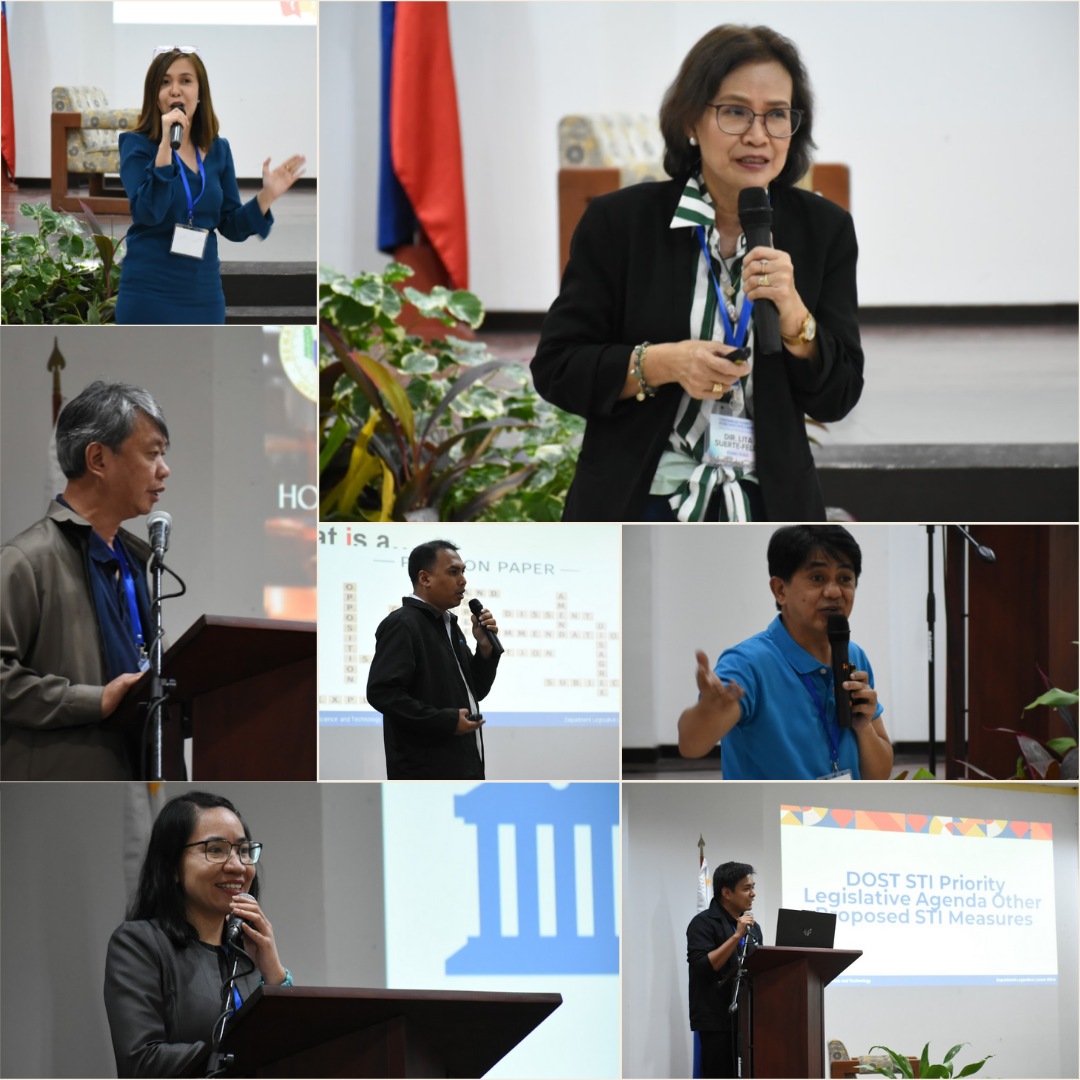
Introductory Session
This session featured lectures from distinguished experts, including Bureau Director Jose G. Villapando from the Senate of the Philippines; Atty. Maria Victoria Bayang from the House of Representatives, and key officials from the Department Legislative Liaison Office (DLLO), including Director Lita S. Suerte-Felipe, Mr. Garry L. Aligmayo, Mr. Mark Joseph A. Tano, Ms. Kristine Dominique M. Zamora, and Engr. Christopher Agbulig. The session covered crucial lectures on the legislative process, effective lobbying strategies, and the role of the DLLO in navigating the legislative mill.
In this session, participants learned that successful advocacy requires strategic planning and execution, including collaborating with legislators who align with the Council’s cause. Director Villapando emphasized drafting bills in the correct format, selecting the right legislative champions, and continuous engagement with legislative staff to monitor proposed measures' progress. On the other hand, Atty. Bayang highlighted the complexities of the legislative process, including constitutional requirements, the need for scientific evidence, and political dynamics. Lastly, Director Suerte-Felipe shared insights into DOST’s advocacy experience, emphasizing maintaining strong relationships with legislative staff, participating actively in committee hearings, and leveraging various platforms, such as regional development councils, to support science and technology initiatives at both national and local levels.
Intensive Session
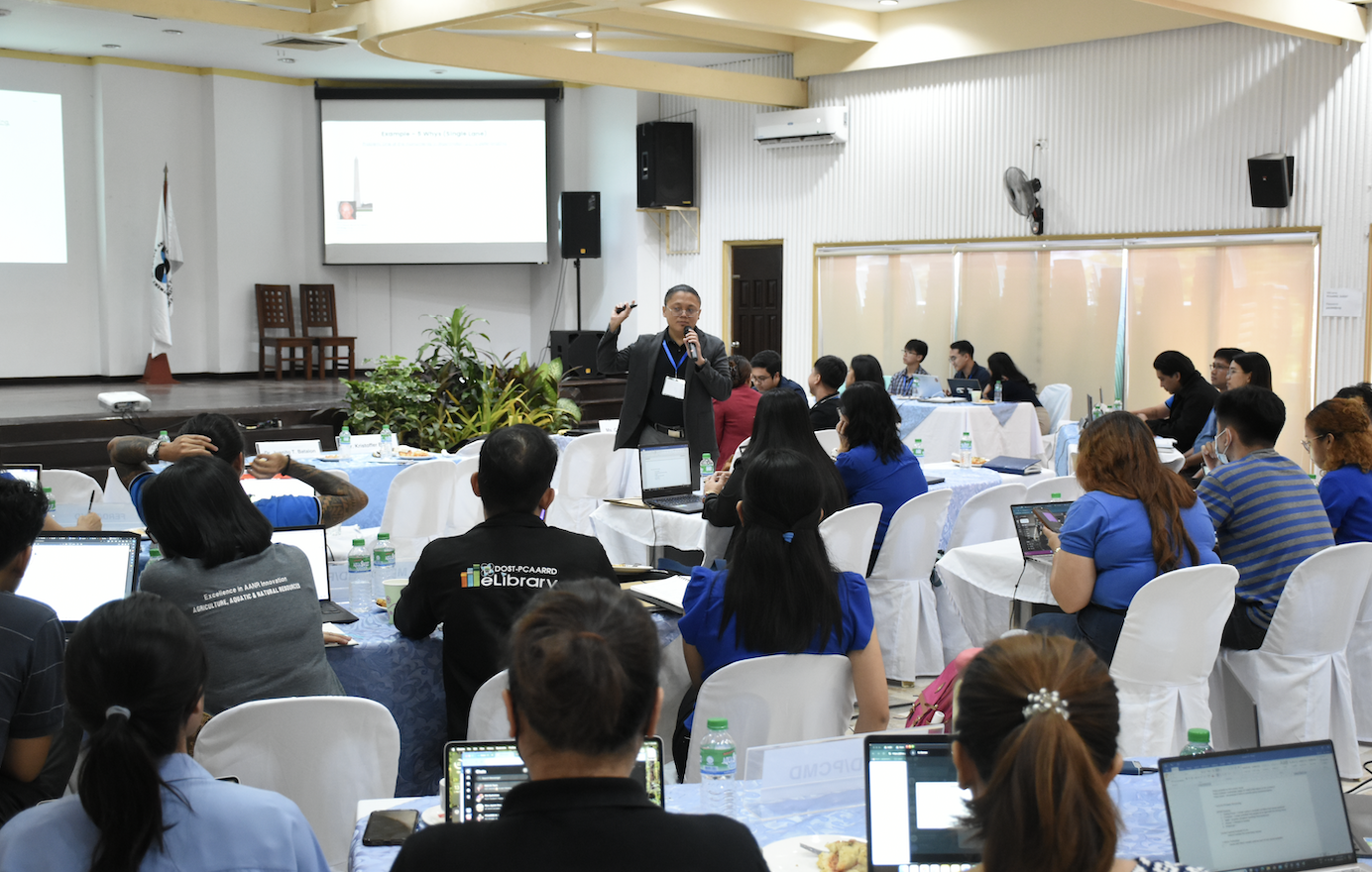
The session, led by Dr. Kristoffer Berse from the University of the Philippines National College of Public Administration and Governance (UP NCPAG) and the Governance Reform, Innovation, and Transformation Laboratories or GRIT Labs (GRIT) Labs Team, provided participants with in-depth training in policy analysis techniques. Participants gained hands-on experience developing position papers and policy briefs specific to their sectors. Notable outputs from the sessions included seven position papers and policy briefs on topics such as smart water technologies, sea cucumber regulation, watershed management, African swine fever, maguey, abaca industry development, and mangrove rehabilitation. These were presented using a "World Café" format, where each group had a presenter and other members rotated to provide insights and feedback.
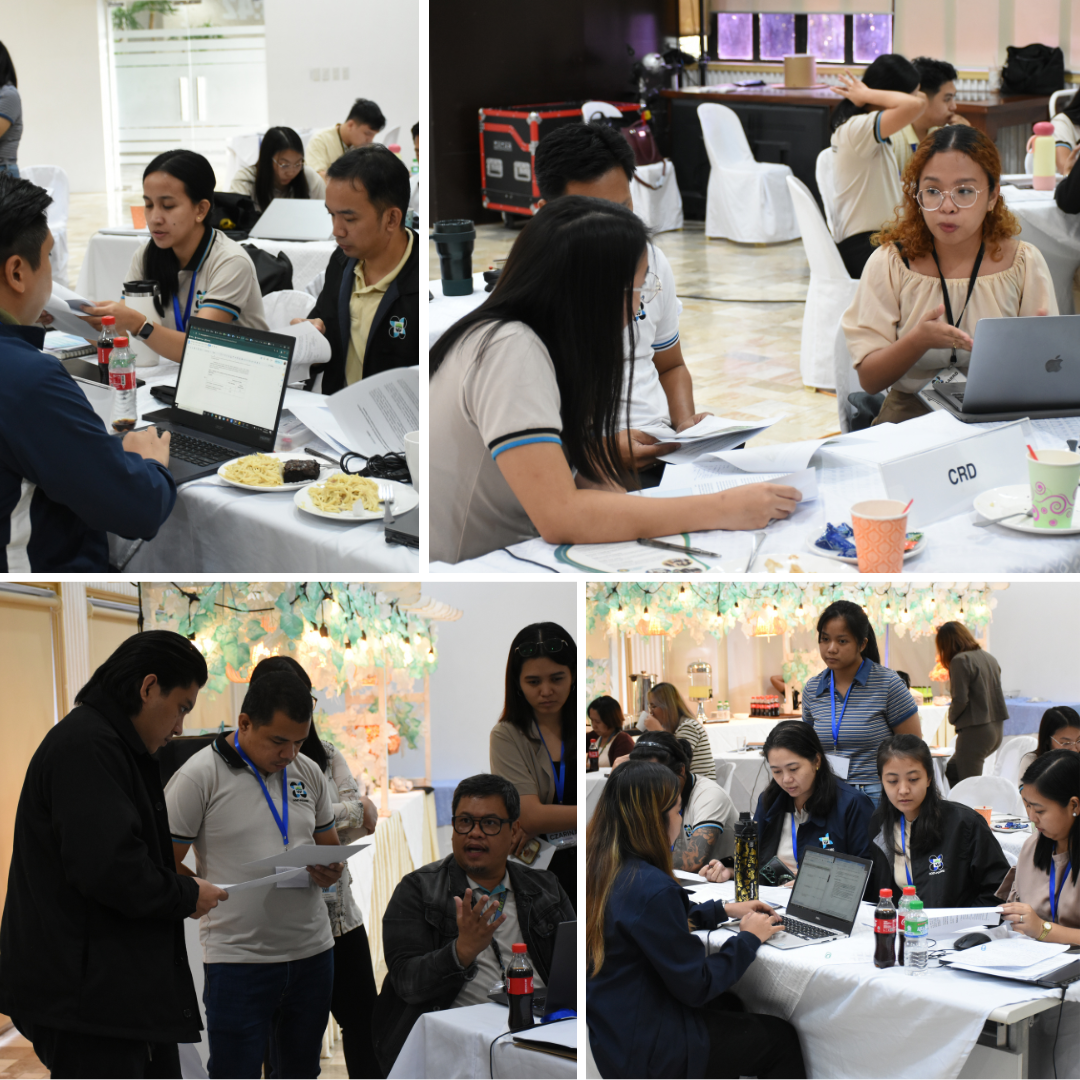
World Cafe of position papers and policy briefs developed by participants. (Image credit: DOST-PCAARRD)
The workshop concluded with a policy briefing simulation, where participants practiced presenting their draft policy briefs and honed their real-world policy advocacy skills. The simulation was facilitated by the GRIT Labs Team, led by Mr. Bryan Jove, Ms. Caren Claire Avenido, Ms. Margjorie Lourdes Avila, and Mr. Lloyd Marcelo, with Dr. Ernesto Brown acting as one of the policymakers.
In the end, Dr. Berse provided valuable feedback, emphasizing the need to highlight urgency and include clear monetary values, such as potential losses or benefits, to strengthen the policy briefs. He also stressed the importance of presenting clear policy options with specific advice and financial implications, particularly for proposed actions. Additionally, he suggested detailing the steps necessary for implementing proposed changes.
The training demonstrated PCAARRD’s commitment to enhancing its role in policy advocacy, equipping participants with essential skills and knowledge to contribute proactively to policymaking. Moving forward, PCAARRD staff are expected to apply these insights to advance their policy recommendations and engage more effectively with legislative bodies and other key stakeholders.
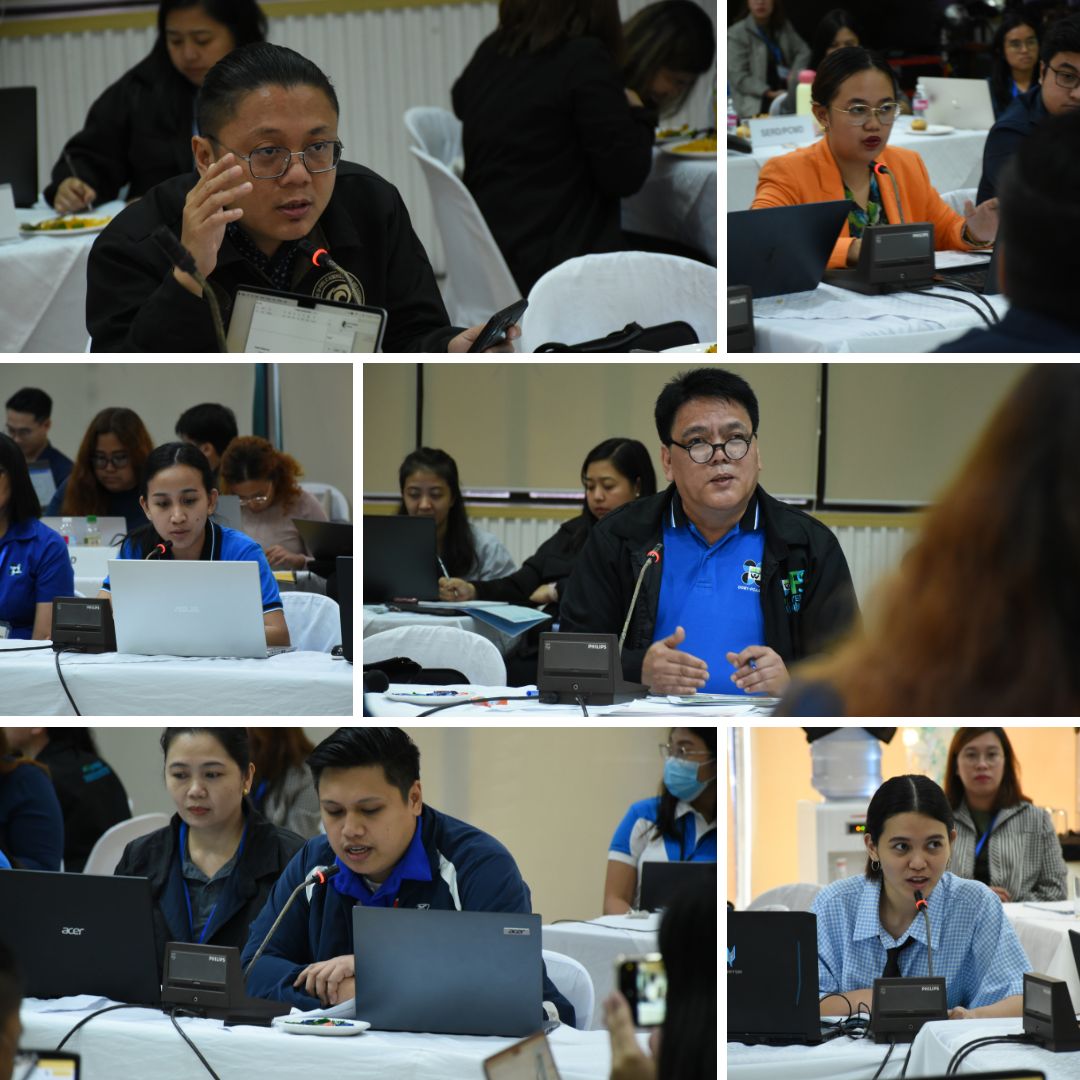
Policy briefing simulation. (Image credit: DOST-PCAARRD)
